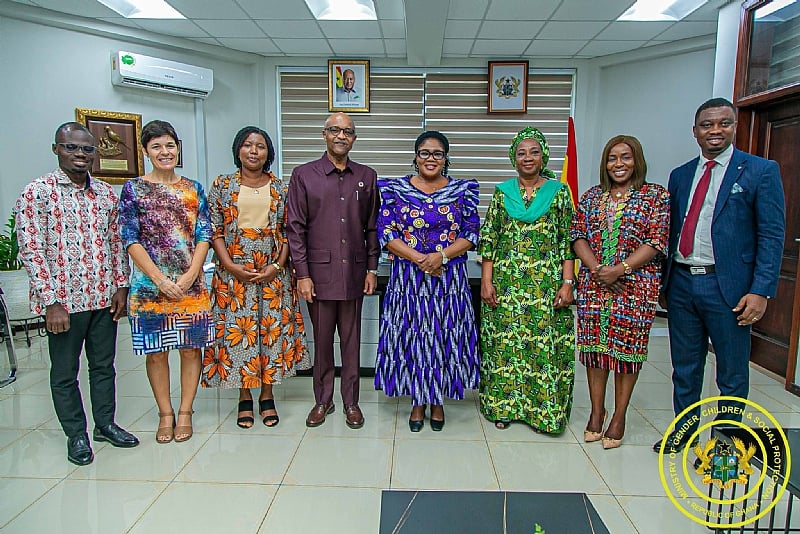Government is committed to building a resilient and inclusive social protection system that leaves no one behind.
The Minister for Gender, Children and Social Protection, Dr. Agnes Naa Momo Lartey said this when the UNICEF Representative to Ghana, Mr. Osama Makkawi Khogali, led a delegation to her office on Monday in Accra.
The Minister disclosed that Cabinet has approved both the Social Protection Bill and the Domestic Violence Bill, which are now due for submission to Parliament.
“These two Bills are critical because they lay the foundation for a coordinated and rights-based approach to protecting the most vulnerable in our society especially women, children, the elderly, and persons with disabilities.
“The Social Protection Bill will institutionalize key programmes and ensure sustainability, while the revised Domestic Violence Bill will strengthen our legal framework to prevent and respond to gender-based violence,” she added.
She reaffirmed the Ministry’s commitment to working closely with development partners like UNICEF to ensure that national policies are translated into meaningful actions that improve the lives of the most vulnerable populations.
On his part, the UNICEF Representative to Ghana, Mr. Osama Makkawi Khogali, commended the Ministry for its leadership in implementing the Integrated Social Services initiative, which seeks to enhance the coordination and delivery of essential services including social protection, health, education, and child protection to vulnerable children and families.
He also acknowledged Ghana’s ratification of key protocols and instruments aimed at safeguarding children’s rights.
Mr. Khogali reiterated UNICEF’s commitment to strengthening its partnership with the Ministry to align with the Government’s overarching goal of reducing poverty and vulnerability, as championed by President John Dramani Mahama.
The meeting covered a wide range of issues, including child bullying in schools and communities, the expansion of the Livelihood Empowerment Against Poverty (LEAP) programme to reach more vulnerable pregnant women, and strategies to ensure that children not currently captured in the national birth registry are included in social protection targeting.


